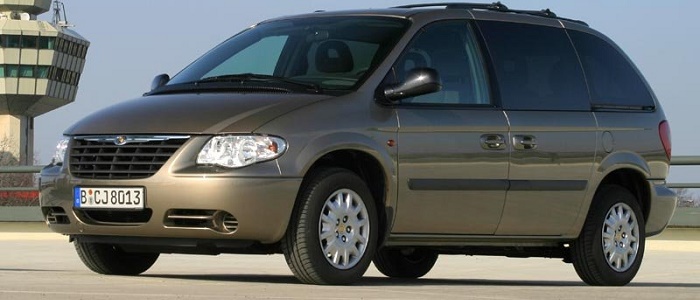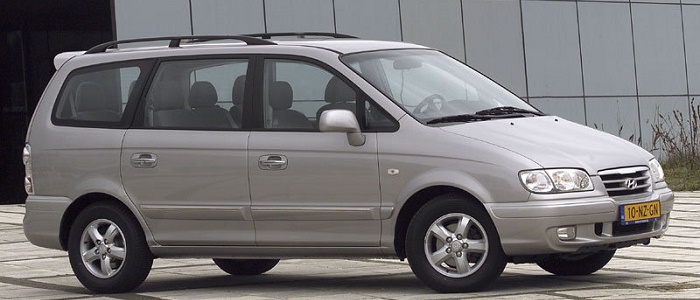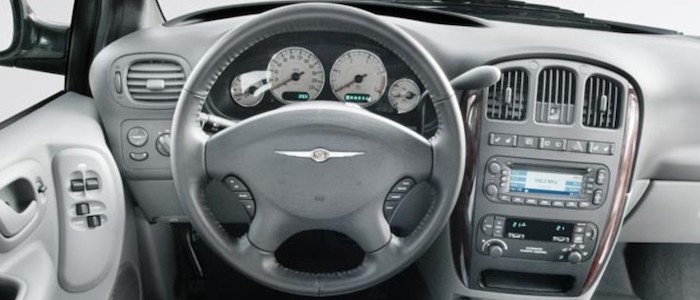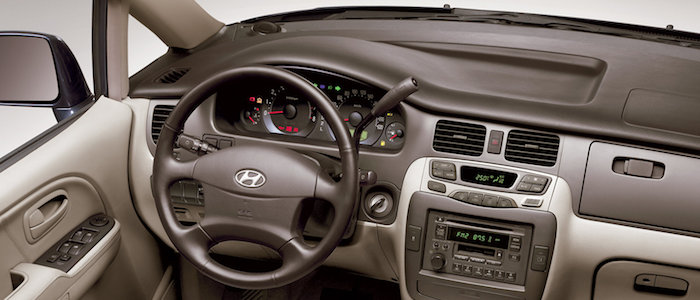Compare two cars
Compare any two cars and get our Virtual Adviser™ opinion
Marketing
Dimensons & Outlines
Engine
Performance (manual gearbox)
Performance (automatic gearbox)
Expenses
Virtual Adviser's™ opinion
Well, these are two pretty similar cars we have here! It's only details that could potentially make the difference. Considering they both belong to the mpv segment and utilize the same 5-door MPV body style and the front wheel drive system, it all comes up to the specific petrol engine choice they offer. The first one has a Chrysler-engineered powertrain under the hood, a 6-cylinder, 12-valves 180hp unit, while the other one gets its power and torque from a 6-cylinder, 24-valves 167hp engine designed by Hyundai.
SafetyBoth vehicles got tested by European New Car Assessment Programme (Euro NCAP), with the Hyundai being a slightly better choice apparently. That aside, let's consider some other aspects which affect safety. Both vehicles belong to the mpv segment, which is generally a good thing safety-wise, still it doesn't help us solve our dilemma, does it? Furthermore, when it comes to weight, a factor that most people underestimate, the American car offers a marginal difference of 4% more metal.
ReliabilityI don't like generalizing things when it comes to reliability, although it does seem that Hyundai is significantly less fault-prone, at least on all of the models level. These are the results of an independent reasearch, while our visitors describe reliability of Chrysler with an average rating of 4.4, and models under the Hyundai badge with 4.5 out of 5. Independent research findings rank Voyager as average reliability-wise, and Trajet is more or less at the same level.That apart, owners of different cars powered by the same engine as the American car rank it on average as 3.0 out of 5, exactly the same as the other one.
Performance & Fuel economyHyundai is undoubtly more agile, reaching 100km/h in 1.1 seconds less than its competitor. In addition to that it accelerates all the way to 192 kilometers per hour, 13km/h more than the other car. When it comes to fuel economy the winner has to be the Korean car, averaging around 11.4 liters of fuel per 100 kilometers (25 mpg), in combined cycle. We can't ignore that 11% difference compared to the American car.
Verdict
Hyundai is apparently more reliable, not too much, but just enough. The most important thing when deciding between any two vehicles should always be safety, both passive and active. In my opinion, everything taken into account, the Korean car offers slightly better overall protection and takes the lead. It all continues in the same direction, with Hyundai being considerably quicker, thus putting more smile on driver's face. To make things even better, it consumps less fuel! All together, there's not much more to say, in this case I wouldn't even consider anything but Hyundai. Anyway, that's the most objective conclusion I could've came up with and it's based solely on the information found on this website. Aspects such as design, practicality, brand value and driving experience are there for you to measure them out. I suggest you spend two more minutes in order to find out which car, based on your needs and budget, would be picked by the virtual adviser™, among more than 12.000 different ones in our database.































